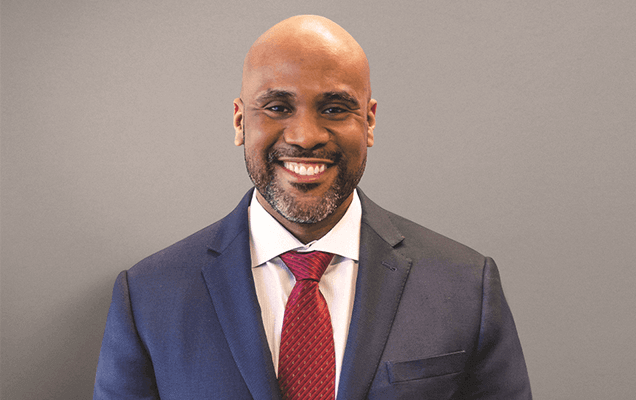Benign nerve sheath tumors come in two forms, schwannomas and neurofibromas. They are very similar and treatment considerations for both are virtually identical. If you’ve been diagnosed with a benign nerve sheath tumor, you and your doctor will need to decide how to treat it. It may seem like a complicated decision to make, but by gathering information about your condition and the available treatment options, you can feel more confident about the road ahead.
What follows is an overview of benign nerve sheath tumors, some common treatments and some factors that determine whether your tumor needs to be removed. You can use this guide to form questions for your doctor.
What Is a Benign Nerve Sheath Tumor?
In order to understand what a benign nerve sheath tumor is, it’s important to understand some of the basic anatomy of the nervous system. The nervous system, which includes the brain and the spinal cord, consists of billions of cells known as neurons. Neurons are connected to each other by fibers that are covered in myelin, also known as the “nerve sheath.” In a healthy cell, myelin facilitates communication and protects the fiber from damage. In some cases, however, the cells that produce myelin can grow abnormally and form tumors that rest on the connective fiber. It isn’t totally clear what causes these tumors, although it sometimes has to do with a person’s genetics.
While some extremely rare nerve sheath tumors are aggressive, or malignant(cancerous), the vast majority of them are benign (noncancerous). This means they grow very slowly and don’t always pose an immediate threat to your health. Even so, they can cause symptoms that many patients find upsetting and, if left untreated, lead to serious neurological symptoms such numbness, weakness, and loss of balance. Typical symptoms include pain, numbness and/or loss of function in the affected area.
If you present one or more of the above symptoms to your doctor, he or she may decide to perform additional tests to confirm the diagnosis. MRI is the imaging test of choice to determine the exact size and location of the benign nerve sheath tumor. In some cases a biopsy is useful to show whether it is malignant or benign.
Typical Treatment Options for Benign Sheath Tumors
Once your doctor has confirmed that you have a benign nerve sheath tumor, the next step is to decide whether or not it needs to be treated. Surgical resection is a common choice, but it isn’t always necessary if the tumor is small or in a non-sensitive location.
Depending on the details of your condition, such as the level of discomfort caused by the benign nerve sheath tumor, the best course of action may be no action at all. If the tumor neither grows quickly nor causes any significant reduction in your quality of life, it may be best to simply let it be while cautiously observing it.
If you and your doctor determine that your benign nerve sheath tumor requires active treatment, surgery is the treatment of choice.
It's time to get back to doing what you love.
Factors That Determine Whether Removal Is Necessary
Surgical removal is a highly effective treatment option for benign nerve sheath tumors, but it isn’t for everyone. There is a particular set of conditions that can help determine whether removal is necessary for benign nerve sheath tumors, but the decision will always be made on a case-by-case basis.
What follows is a description of some of the most important factors that determine whether removal is necessary to treat your benign nerve sheath tumor.
Location
The location of your benign nerve sheath tumor plays an important role in determining whether removal is necessary. Benign nerve sheath tumors often grow within the spinal canal and can compress spinal nerves or the spinal cord. In these situations even small tumors can cause big problems. If your tumor is already compressing nerves or causing neurological symptoms, surgery is likely needed. If the growth of your tumor will likely produce nerve compression in the near future, surgery may be recommended. If your tumor is very small or exists in a location where it does not compromise other vitals structures, observation may be recommended.
Overall Health and Age
Another important factor in determining whether surgical removal is an appropriate option for your benign nerve sheath tumor is your overall health. Patients in better overall health prior to their surgery are generally more capable of withstanding the stress that an operation can place on the body. Furthermore, patients in better overall health can expect a faster recovery. You should talk with your doctor if you have any doubts or concerns about how your health may affect your candidacy for surgery.
Pre-Existing Conditions
Pre-existing conditions are a component of your overall health. If you have pre-existing conditions that complicate your surgeon’s ability to successfully remove your benign nerve sheath tumor, he or she may decide that it’s best to pursue other treatment options.
Final Thoughts
One of the most important things to understand about benign nerve sheath tumors is that they are best treated on a case-by-case basis. Your doctor should work with you to understand your health, your lifestyle and what you hope to gain from your treatment. By working together with your doctor and continuing to do research of your own, you can feel more at ease about the future of your health.

About Dr. Gaetan Moise
Dr. Gaetan Moise is an accomplished neurosurgeon in North Jersey and is a proud member of Neurosurgeons of New Jersey, practicing out of their Ridgewood office conveniently located on East Ridgewood Avenue. His compassionate evidence-based, results-driven approach is guided by his desire to help patients achieve happy, pain-free lives through non-surgical and appropriate surgical solutions. Dr. Moise’s techniques are influenced by the advancements in minimally invasive surgery technology as well as advances in the understanding of the intricacies of the nervous system, brain, and spinal cord. Dr. Moise is a member of The Congress of Neurological Surgeons and the American Association of Neurological Surgeons. He is accepting new patients.






